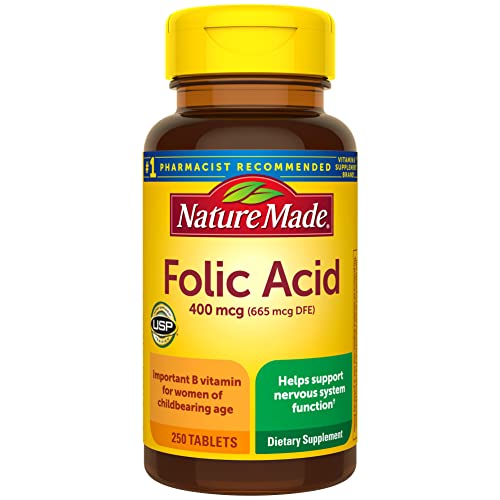Folic Acid & Fertility: What You Need to Know
Quick Summary: Research shows that a healthy diet, including folic acid, is linked to better fertility in women. This means eating well and taking folic acid can help if you're trying to get pregnant.
Why Folic Acid Matters for Fertility
Folic acid is a B vitamin that's crucial for cell growth and development. This study highlights its importance for women trying to conceive. It's a key part of a healthy diet that supports fertility.
Study Details
This research looked at the connection between diet and female fertility. The study didn't focus on a specific group of women, but rather reviewed existing research on the topic. It looked at the overall impact of diet and lifestyle on fertility.
What This Means For You
- Take Folic Acid: If you're planning to get pregnant, taking a folic acid supplement is a good idea. This is a well-established recommendation.
- Eat a Healthy Diet: Focus on a diet similar to the Mediterranean diet. This means lots of fruits, vegetables, whole grains, and healthy fats.
- Get Checked for Deficiencies: Talk to your doctor about checking your vitamin D and iodine levels. You might need supplements if you're low.
- Limit Unhealthy Foods: Try to avoid foods high in trans fats, refined carbs, and added sugars.
Study Limitations
This study is a review of existing research, so it doesn't provide new data. It highlights what other studies have found. More research is always needed to confirm these findings and understand the best ways to support fertility.
Technical Analysis Details
Key Findings
The study highlights that a Mediterranean diet rich in fiber, omega-3 fatty acids, plant-based protein, and micronutrients (including folic acid) positively correlates with female fertility, while diets high in trans fats, refined carbohydrates, and added sugars impair fertility. It confirms that folic acid supplementation is an established recommendation for women of childbearing age to support reproductive health. Additionally, the authors emphasize addressing vitamin D and iodine deficiencies through blood monitoring and supplementation when necessary. No evidence supports gluten exclusion in non-celiac women, and moderate caffeine or alcohol intake does not appear to harm fertility. Phytoestrogens may improve fertility, though further research is needed.
Study Design
This is an observational study published in 2021, analyzing associations between diet, lifestyle, and female fertility. The methodology (e.g., cohort, case-control) and specific sample size, duration, or demographic details (age, ethnicity, baseline health) are not provided in the summary. Observational designs inherently identify correlations rather than causation, and the lack of methodological specifics limits critical evaluation of its rigor.
Dosage & Administration
The summary does not specify folic acid dosages or administration protocols used in the study. However, it aligns with existing guidelines recommending folic acid supplementation for women planning pregnancy. Similarly, vitamin D and iodine supplementation are advised based on individual deficiency status, not standardized doses.
Results & Efficacy
The study reports that Mediterranean dietary patterns enhance fertility outcomes, while unhealthy diets disrupt hormonal balance and microbiota composition. Folic acid supplementation is described as "established" for women of reproductive age, though no quantitative effect sizes, p-values, or confidence intervals are provided in the summary. The authors note insufficient evidence to link gluten, moderate caffeine, or alcohol intake to fertility impairment but suggest phytoestrogens may have a beneficial role.
Limitations
The summary lacks critical details on sample size, participant demographics, and statistical methods, hindering assessment of validity and generalizability. As an observational study, it cannot establish causality. The authors acknowledge gaps in research on gut microbiota’s role in infertility and the need for randomized controlled trials (RCTs) to evaluate specific dietary interventions and supplements. Potential biases, such as self-reported dietary data or confounding variables (e.g., socioeconomic factors), are not addressed in the provided summary.
Clinical Relevance
The study reinforces folic acid supplementation as a standard recommendation for women attempting pregnancy, consistent with public health guidelines. It suggests prioritizing a Mediterranean-style diet to optimize fertility and highlights the importance of screening for vitamin D and iodine deficiencies. Clinicians should avoid advising gluten restriction without celiac diagnosis and reassure patients that moderate caffeine/alcohol consumption likely poses minimal risk. However, the lack of specific dosing or intervention data underscores the need for personalized medical advice and further RCTs to clarify dietary and supplement impacts on fertility.
Note: This analysis is limited to the information provided in the study summary. Full methodological transparency requires access to the original article via PMID 34139003.
Original Study Reference
Female Fertility and the Nutritional Approach: The Most Essential Aspects.
Source: PubMed
Published: 2021
📄 Read Full Study (PMID: 34139003)




